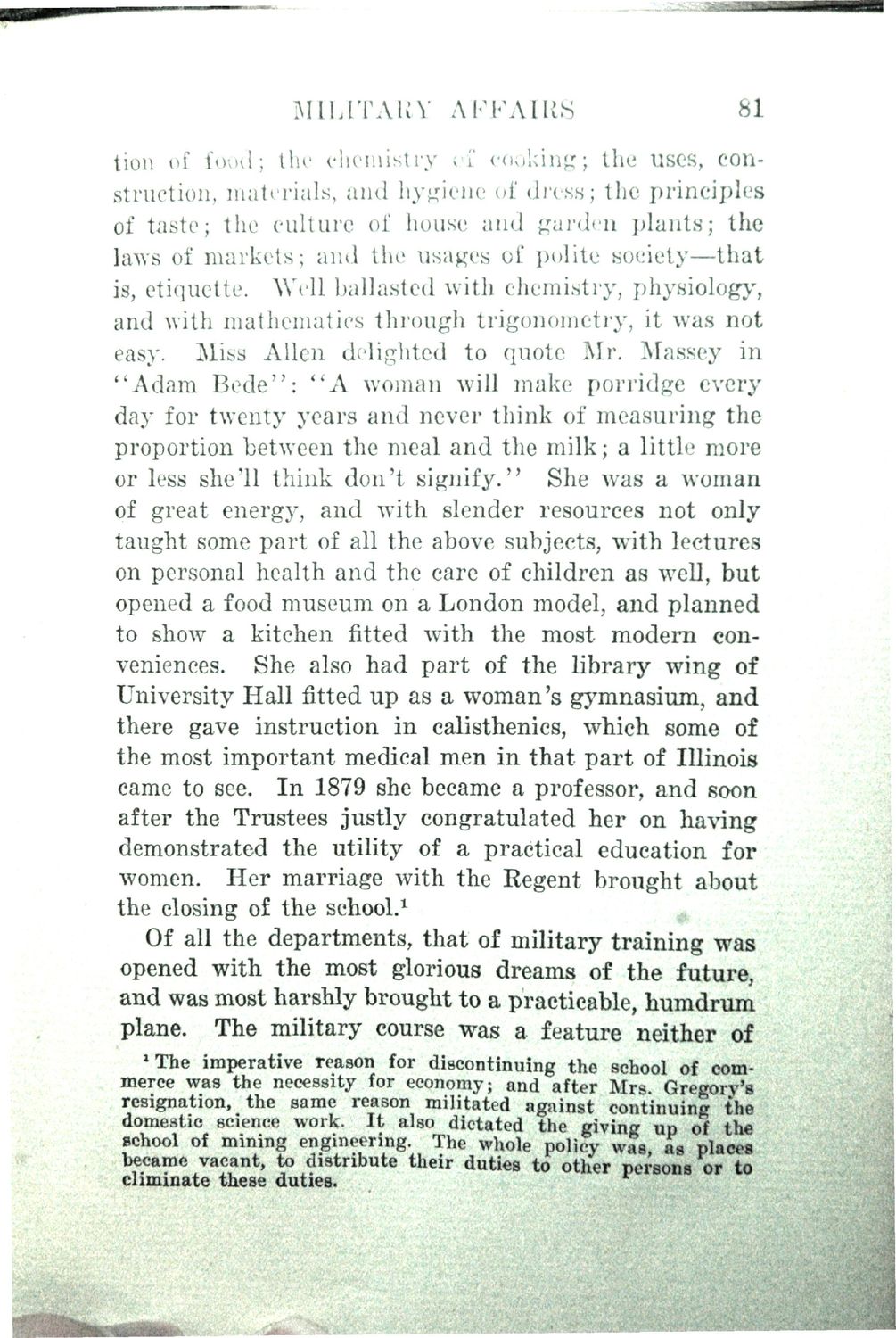| |
| |
Caption: Book - History of the University (Nevins)
This is a reduced-resolution page image for fast online browsing.

EXTRACTED TEXT FROM PAGE:
MILITARY AFFAIRS 81 tion of food; the chemistry of cooking; the uses, construction, materials, and hygiene of dress; the principles of taste; the culture of house and garden plants; the laws of markets; and the usages of polite society—that is, etiquette. Well ballasted with chemistry, physiology, and with mathematics through trigonometry, it was not easy. Miss Allen delighted to quote Mr. Massey in "Adam Bede": " A woman will make porridge every day for twenty years and never think of measuring the proportion between the meal and the milk; a little more or less shell think don't signify." She was a woman of great energy, and with slender resources not only taught some part of all the above subjects, with lectures on personal health and the care of children as well, but opened a food museum on a London model, and planned to show a kitchen fitted with the most modern conveniences. She also had part of the library wing of University Hall fitted up as a woman's gymnasium, and there gave instruction in calisthenics, which some of the most important medical men in that part of Illinois came to see. In 1879 she became a professor, and soon after the Trustees justly congratulated her on having demonstrated the utility of a practical education for women. Her marriage with the Regent brought about the closing of the school.1 Of all the departments, that of military training was opened with the most glorious dreams of the future, and was most harshly brought to a practicable, humdrum plane. j T h e military course was a feature neither of *The imperative reason for discontinuing the school of commerce was the necessitypor economy; and after Mrs. Gregory's resignation, the same f^son militated against continuing the domestic science work,;g|lt also dictated the giving up of the school of mining engineering. The whole policy was, as places became vacant, to distribute their duties to other persons or to eliminate these duties.
| |